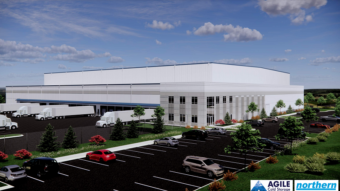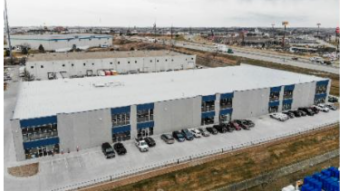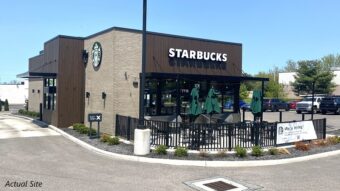by Dan Rafter
Midwest Real Estate News recently spoke with Mike Bell, general manager of Kansas City’s Hunt Midwest, about the rise in construction activity today in Kansas City. Bell pointed to the industrial and multi-family sectors as the hottest in his market.
Midwest Real Estate News: How much construction activity are you seeing today in the Kansas City market? Are you seeing more than last year or the year before? Mike Bell: Absolutely, we are seeing more. The industrial market has been very hot and heavy as far as new construction goes. There has been a lot of spec building going on. We have even been a part of that at Hunt Midwest. We have added spec space in our SubTropolis underground business complex here in Kansas City. We have seen a lot of growth in the industrial market here, and we expect that to continue into next year.
MREN: What other construction trends are you seeing? Are any other sectors hot in the Kansas City market today in addition to industrial? Bell: With easing credit conditions, it is easier today for developers and buyers to get financing for projects. There are now more infill projects being built downtown. The historic tax credits are being used more often by developers who are renovating and building apartments. With the low interest rates and easing of credit constraints, there is a lot of multi-family construction going on in our market. There is something near 1,500 apartments being built in the market. Office is even coming back, both nationally and locally. So we are seeing plenty of good news in our market as far as construction goes.
MREN: Are there any challenges on the horizon that could slow some of the new construction activity here? Bell: The Sprint layoffs are a challenge. (Sprint, based in Overland Park, Kansas, in October began a mass layoff of employees, cutting 452 jobs alone on Oct. 17.) Those could bring a halt to office construction in the Kansas City market. That will open another million square feet of office space, potentially.
MREN: Is there any sector in the region that is more sluggish? Bell: The one sector that is slow when it comes to construction, and was hot before the recession, is retail. It hasn’t come back like it has before. It is interesting. In the industrial market, you are seeing an increase in new construction. But half of our growth in that sector this year is coming from e-commerce buildings. The retailers are going to use industrial fulfillment centers to distribute their goods to consumers. That could play a role in the slowdown of retail construction. Retailers are relying more on online sales and less on brick-and-mortar stores. Where you are seeing a lot of e-commerce growth is in markets located near FedEx and UPS terminals. We are close in Kansas City to both of those. That is fortunate.
MREN: What needs to happen for even more construction activity to take place in Kansas City and its surrounding areas? Bell: More jobs and rising consumer confidence are the biggest things we need to see. When we see new jobs being created, that can only help the commercial construction industry. That and continued employment, putting people to work, is what we need. We need an economy in which people have disposable income, where they feel comfortable buying goods. We need to keep the economic cycle moving.
MREN: What trends are you seeing in the Kansas City multi-family sector? Bell: Renters want good amenities. They want to know that the owners of their buildings are taking care of them and are providing them with the best customer service. The product we are building in Johnson County features pools and all the luxury services that people have come to expect from modern apartment buildings. Renters want the doorman and the chauffeur service.
MREN: When you look at the Kansas City market, what sets it apart from other markets in the Midwest? Bell: You always hear that Kansas City and the Midwest in general stay pretty consistent through the good and the bad times. On the coasts, when times are good they really expand. When they are bad, they suffer through huge job losses. We don’t see that here. That’s a plus. We are pretty consistent and conservative. At the same time, we have highly trained and talented people here in the tech sector. Our cost of living is a huge plus, too. We are on I-70, I-35 and I-29, all roads that converge in Kansas City. We have the ability to ship to the majority of the country in three days. That beats most of the metro areas in the United States.



